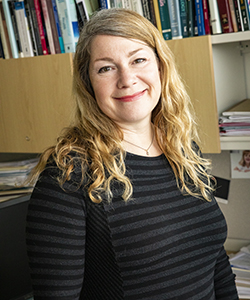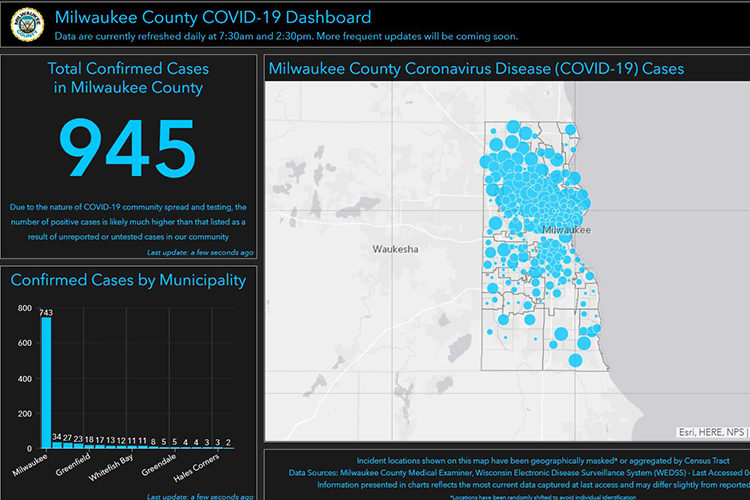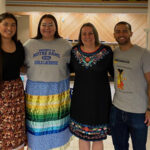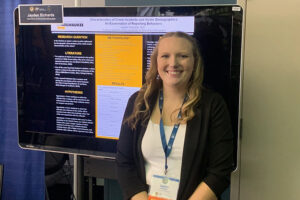If you have symptoms of the coronavirus disease, chances are you will not receive a laboratory test confirming it because the number of tests is limited nationwide.
Under-detection of the illness leaves health officials without data needed to slow the spread of the illness, said Amy Kalkbrenner, an epidemiologist at the University of Wisconsin-Milwaukee’s Zilber School of Public Health.
To address the problem, Kalkbrenner is urging people who feel sick to report their symptoms through a confidential online survey she has developed. Using a smartphone or computer, go to wecountcovid19.com.

The site will collect information on symptoms by ZIP code and day. It is open and free to anyone in Milwaukee – and throughout the U.S.
This survey is available to those 18 years or older, and parents may report for their children younger than 18. It is accessible in Spanish, provided by Amy Olen, UWM assistant professor of translation and interpreting studies.
“Symptom data can be thought of as an ‘early warning system,’” Kalkbrenner said. “If enough people are reporting, the symptom data should show an uptick quite a few days ahead of lab testing data. This would allow time for Milwaukee to ramp up the medical care personnel and equipment when it’s most needed.”
The survey will help public health and local government officials get a better idea of the scope of the virus’ impact by location, even though some of those reporting might have a different respiratory illness.
“While it’s not possible to know for sure that any given individual has coronavirus just because they report symptoms, it is possible to make pretty good guesses,” she said, based on known patterns of seasonal flu and allergies.
Results, including maps by ZIP code, will be available to health departments and the general public alike on the same website through a collaboration with Brian Barkley and the Code for Milwaukee organization. The data can help people see where symptoms are being reported, and that may help them continue practicing necessary social distancing, she said.
While open to anyone in the U.S., Kalkbrenner is hoping the survey will be particularly helpful in revealing conditions in the Milwaukee area.
“Our ability to better understand COVID-19 relies on this survey reaching as many people as possible,” she said.








